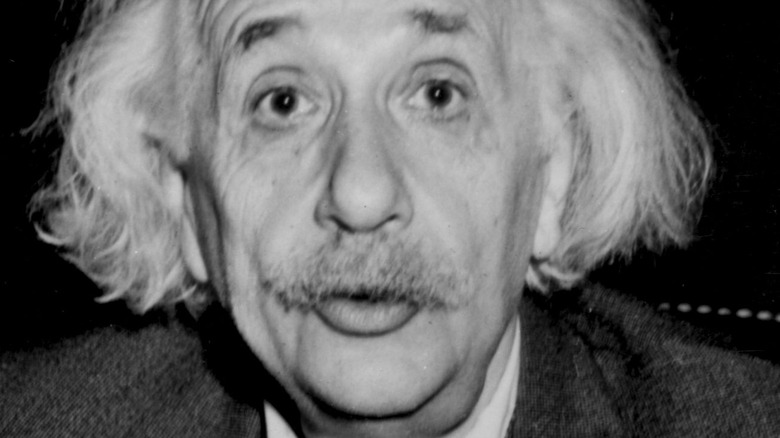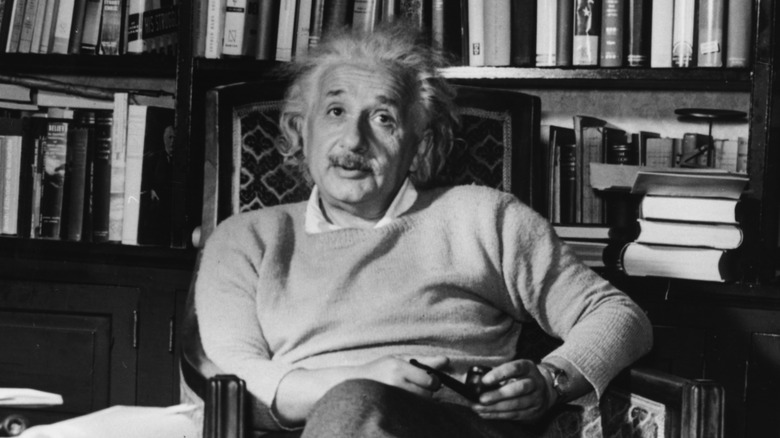This Is Einstein's Estimated IQ
German physicist Albert Einstein is often hailed as one of the smartest men to ever grace the world. Known for inventing the equation that helped humanity understand the theory of relativity, he is also considered a genius for other research, including one that proved the existence of atoms (via Science Focus). Aside from his famous e=mc2 rule, he discovered the quantum theory of light, the photoelectric effect, and many more groundbreaking theories and discoveries (via Interesting Engineering). Einstein's work helped transform the field of science, and he became famous as a result. Based on what history knows about him, he was considered very smart. But just how smart?
The intelligence quotient, better known by its initials, IQ, is a score that is used to determine how intelligent someone is (via Science News for Students). The test is used to designate a score for a person's ability to reason and use logic. Theoretically, the highest IQ score possible is 200, though a few have surpassed even that number. On average, the typical person can score somewhere between 85 and 110, says Science Trends. Anything above 130 is considered a high IQ, and a score under 70 is considered very low, per HealthLine. So where does Einstein, one of the smartest men in history, rank?
Just how high was his IQ, really?
Despite his obvious intelligence, there's no evidence that Einstein was given anything like an official IQ test, says Biography. The IQ test was developed by French psychologist Alfred Binet in 1905 (via Britannica). Of course, the test would see several changes over the years, even during its infancy when Einstein was around — but there's no certainty that he ever took the now-popular intelligence test.
As a result, researchers can only estimate what Einstein's IQ may have been. That number is 160, which was concluded by research using information from an experiment Einstein did when he was just a teen. When Einstein was 16, he developed the thought experiment — the basework of what would become his theory of special relativity. Researchers concluded that his thought process to develop the concept placed him at a very advanced intelligence level.
Furthermore, Einstein becoming a physicist and studying the subjet at the highest level is another example of his high IQ. Apparently, the field of physics attracts highly intelligent individuals, and obtaining the most senior degree already placed Einstein in the upper percentile, says a professor who researched Einstein's IQ.
Biography quotes Professor Jonathan Wai of the University of Arkansas: "People who obtain PhDs in areas such as physics tend to have extremely high IQs ... if someone is a physicist, they are very likely to be well above average in IQ relative to the general population," said Professor Wai.

